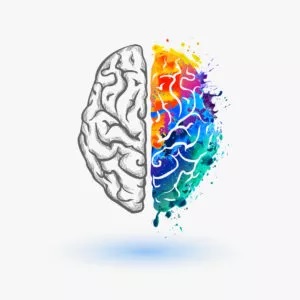You’ve probably heard many recovering addicts or experts advise against beginning romantic relationships in recovery. After all, it’s no secret that most experts recommend waiting until you’re at least a year into recovery. This recommendation is made because recovery is a vulnerable process and relationships can have a huge impact on your success or failure in that process.
Some relationships are constant, like one’s family and long-term friends, and the stability and support that they can provide is a fantastic recovery aid. Conversely, you might need to recognize which relationships are toxic and harming to your recovery and take steps to reduce their impact.
Entering romantic relationships in recovery does not add stability and reliable support because new relationships often come with intense emotions. Therefore, these relationships in early recovery should be approached differently to constant, pre-existing relationships.
In this article, we’ll explore why many people advise against getting into serious relationships while in recovery and what you can do despite that.
Key Risks Of Romantic Relationships In Recovery

Ways in which entering a romantic relationship can jeopardize your recovery:
- It can add stressors and triggers to your life
- It can transfer and replace your addiction instead of curing it
A romantic relationship, and even just dating someone while in recovery, can carry significant emotional highs and significant emotional lows. While these are normal, they can be disastrous for your recovery.
Some relationship difficulties result in arguments or mistreatment. With arguments and mistreatment come anger and hurt. These unpleasant feelings may be additional triggers for a recovering addict. In turning to seek some form of consolation for the pain, this may lead to a relapse.
Additionally, many aspects of romantic relationships cause chemical responses in the brain.
- The basis of attraction and the feeling of a bond to your partner occurs with a release of dopamine and oxytocin while in a relationship [1]. These occur whenever you are looking at or engaging with a romantic partner.
- As the relationship progresses, a molecule known as corticotrophin-releasing factor (CRF) gets released when couples separate. This molecule creates unpleasant feelings that causes couples to miss each other. It engenders feelings of yearning for the couple to see each other again and get back together.
- In men, vasopressin is also increased in the brain. Vasopressin has been linked to territorial behavior. This molecule could be the reason why men feel possessive, loyal and protective over their partners. Vasopressin can also promote fidelity in a relationship.
Since your brain is flooded with many neurotransmitters, it is not ‘chemically balanced’. Some of these chemical occurrences can mimic the experience of a high from illicit drugs and alcohol. Drug addicts may be strongly affected by the normal euphoric feelings of a romantic relationship.
These chemical occurrences can result in a type of dependence. Instead of being dependent on drugs and alcohol, people in recovery may become dependent and addicted to the relationship.
Since addiction treatment attempts to restore chemical balance in the brain, encouraging the same chemical imbalances and dependency undermines the whole recovery process.

So Should You Jump Into Romantic Relationships in Recovery Or Not?
With the above factors in mind, it’s important not to jump into romantic relationships in early recovery. If the relationship or the person is right for you, they can wait until you’re able to get and stay sober with the help of addiction treatment programs.
While it’s best to wait until you’ve been sober for quite some time, dating in recovery can still work out. If you’re keen to move forward in a relationship, it’s important to let a counselor or a psychiatrist at the drug rehab know. This will give them the opportunity to watch out for warning signs. They’ll also help you navigate through the turbulence of romantic relationships in recovery. They’ll teach you how to juggle addiction treatment for alcohol and drugs with the emotions of being in a relationship.
Golden Rules For Dating Someone in Recovery

If you’re living in sobriety and have at least a year under your belt, you might be ready to start thinking about a romantic relationship. Here are some golden rules to consider:
- Avoid feeling guilty about your past. Guilt can poison your new relationship, and undo all of the recovery you have accomplished already
- Invest in building a healthy relationship. Communicate your feelings. A better relationship will carry less risk of triggering relapse.
- Don’t detach yourself from your existing recovery support network. Exchanging your existing support for your new partner will make you very vulnerable to both a relationship dependency and risk of relapse
What to do When Entering into a Relationship with a Drug Addict
If you’re interested in a relationship with someone who is in addiction recovery, it’s important that you know what to do to help them work through to sobriety. You may become a huge pillar of support in their life. Your choices can easily influence their actions and what they do. Let’s look at what you should and shouldn’t do.
Starting a Relationship With Someone Going Through Addiction and Recovery
If your partner has been in recovery for less than a year, it’s a good idea to let them complete addiction recovery first. Give them time to get grounded and to establish a strong foundation in recovery before embarking on a new romantic relationship. If both of you feel that you’re ready to take the relationship further, here are some things you can do to support them in their recovery:
- Learn about their recovery program to offer more support. There are a few changes that you might need to make in your own life to support them. This may involve avoiding situations with drugs or alcohol. It may even involve attending Alcoholics Anonymous [2] (AA) meetings with them.
- Educate yourself about the disease of addiction. Learn about the type of addiction that your partner has. For example, if they have a heroin addiction, take a look at the side effects or withdrawal symptoms that are to be expected. It’s important to understand that addiction is a chronic mental health disease. If you believe that addiction is shameful or a moral failing, you can cause unnecessary emotional damage to a recovering drug addict.
- Know your own limits. Figure out what your limits are and stick by it. It’s important to understand that addiction comes with many unsavory effects. Your partner may relapse or may still be under a lot of debt from their drug addiction. They may need to re-enroll in a rehab facility at times to recover. Being clear and honest about what you can tolerate from the outset will reduce stress on both of you throughout.
What To Avoid When In A Relationship With A Drug Or Alcohol Addict
There are plenty of things you can avoid in order to best support your partner in recovery. Consider the following ideas:
- Avoid making snap judgments. Don’t judge a person in recovery just because they’re struggling with an addiction. It takes a level of humility and self-awareness for a person in recovery to identify that they have a problem. They’re already doing the best that they can by seeking addiction treatment. Don’t let the stigma of addiction affect how you treat romantic partners in recovery.
- Do not try to rescue or enable the drug addict. It’s not unusual for partners to want to protect the person in recovery from the consequences of their actions. However, these consequences are a necessary part of rehab. Learn how not to enable the addiction.
- Do not ignore the signs of a relapse. Addiction is a mental illness. It’s not unusual for drug users to relapse. Learn how to identify signs of a relapse and how to identify when a person is sober. It takes a lot of skills training to resist temptations. Keep an eye out for signs of addiction.
If your partner has a rehab that they often go to for a relapse, get more rehab information. You want to be a pillar of support every step of the way. Learn about outpatient treatment and inpatient treatment programs, as well as how to best support a loved one. Help them improve their self-image, so they feel confident again.
So Should You Engage in Relationships in Early Recovery?
In conclusion, when entering into relationships in recovery, you should let a counselor know. It’s important for aspects of relationships to be incorporated into the tailored-for-you treatment program at the addiction rehab.
If you or a loved one are suffering from addiction, there’s no need to deal with it alone. Avenues Recovery are here to support you. Pioneers in addiction rehabilitation, our trained staff are ready to guide you on your journey towards recovery..
If you’re in a romantic relationship already, or just started one, just we can teach you the necessary skills to manage addiction and recovery while keeping the love between you and your partner. Contact us today to find out more about how we can best help you.
Sources
[2] www.aa.or


